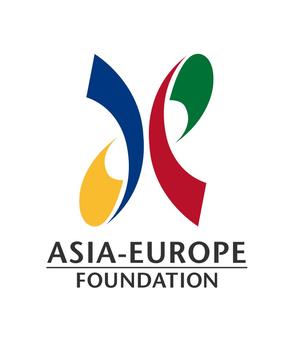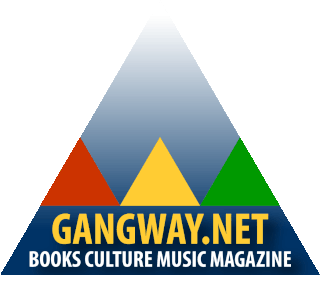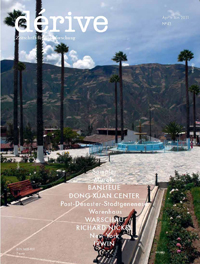The Fulbright Program, including the Fulbright–Hays Program, is one of several United States Cultural Exchange Programs with the goal of improving intercultural relations, cultural diplomacy, and intercultural competence between the people of the United States and other countries through the exchange of persons, knowledge, and skills. Via the program, competitively-selected American citizens including students, scholars, teachers, professionals, scientists, and artists may receive scholarships or grants to study, conduct research, teach, or exercise their talents abroad; and citizens of other countries may qualify to do the same in the United States.
The Erasmus Programme is a European Union (EU) student exchange programme established in 1987. Erasmus+, or Erasmus Plus, is the new programme combining all the EU's current schemes for education, training, youth and sport, which was started in January 2014.
The European Cultural Foundation (ECF) is a Netherlands-based independent cultural foundation. Its mission is to “make a tangible impact on civil society, citizen initiatives, public opinion and policy proposals to combat the fragmenting forces jeopardising peace and social progress in Europe”.
In the European Union education is at the responsibility of its Member States and their Ministries of education that they have; in such, the European Union institutions play only a supporting and overseeing role. According to Art. 165 of the Treaty on the Functioning of the European Union, the Community
shall contribute to the development of quality education by encouraging cooperation between Member States, through actions such as promoting the mobility of citizens, designing joint study programmes, establishing networks, exchanging information or teaching languages of the European Union. The Treaty also contains a commitment to promote life-long learning for all citizens of the Union.
South East Europe Media Organisation (SEEMO) is a regional non-governmental, non-profit network of editors, media executives and leading journalists in Southeast, South, East and Central Europe. The organization aims to create a bridge between international media activities and the media developments in the region. It has headquarters and national committees in several countries. In total 33 member states or territories are included in SEEMO: Albania, Armenia, Azerbaijan, Belarus, Bosnia-Herzegovina, Bulgaria, Croatia, Cyprus, Czech Republic, Estonia, Georgia, Greece, Hungary, Kazakhstan, Kosovo, Kyrgyzstan, Latvia, Lithuania, Malta, Moldova, Montenegro, North Macedonia, Poland, Romania, Russia, Serbia, Slovakia, Slovenia, Tajikistan, Turkmenistan, Turkey, Ukraine and Uzbekistan

Europa Nostra is a pan-European Federation for Cultural Heritage, representing citizens' organisations that work on safeguarding Europe's cultural and natural heritage. It is the voice of this movement to relevant international bodies, in particular the European Union, the Council of Europe and UNESCO. It has consultative status with UNESCO and is recognised as an NGO partner.

The Asia–Europe Foundation (ASEF) is an intergovernmental not-for-profit organization located in Singapore. Founded in 1997, it is the only institution of the Asia-Europe Meeting (ASEM). Its purpose is to promote mutual understanding and cooperation between the people of Asia and Europe through intellectual, cultural, and people-to-people exchanges.

The European Society of Radiology (ESR) is an international medical society based in Vienna, Austria dedicated to the promotion and coordination of scientific, philanthropic, intellectual and professional activities of radiology in Europe. In addition to various other activities, the ESR serves as an umbrella organisation for European radiologists, organises the annual European Congress of Radiology (ECR) and coordinates the publication of European Radiology, a monthly peer-reviewed medical journal. Additionally, the ESR pilots the harmonisation of teaching programmes throughout Europe with various activities and initiatives.
Krytyka Polityczna is a network of Polish left-wing intellectuals. The network is based around a journal of the same name founded by Sławomir Sierakowski in 2002, but is open to voices from across the political spectrum. The name draws on the tradition of Young Poland’s "Krytyka", a monthly magazine published by Wilhelm Feldman at the beginning of the 20th century, and on the samizdat "Krytyka" which served as a forum for opposition writers and journalists in the 1970s and 1980s.
Wespennest is a bi-annual literary magazine published in Austria. It includes texts and images by authors and artists, presenting themes on specific countries, literature, art theory or politics, along with interviews, polemics, book and theatre reviews and works of photography on 112 pages.
The Institute for Human Sciences is an independent institute for advanced study in the humanities and social sciences based in Vienna, Austria.
Language exchange is a method of language learning based on mutual language practicing by learning partners who are speakers of different languages. This is usually done by two native speakers teaching each other their native language. Language exchange is different from other Language learning methods as there is usually no set syllabus or activities. Language exchange is sometimes called Tandem language learning.

The Union for the Mediterranean is an intergovernmental organization of 43 member states from Europe and the Mediterranean Basin: the 27 EU member states and 16 Mediterranean partner countries from North Africa, Western Asia and Southern Europe. It was founded on 13 July 2008 at the Paris Summit for the Mediterranean, with an aim of reinforcing the Euro-Mediterranean Partnership (Euromed) that was set up in 1995 as the Barcelona Process. Its general secretariat is located in Barcelona, Catalonia, Spain.

Gangway was an international online literary magazine, bridging Austria and Australia. Its founder and editor in chief is Gerald Ganglbauer, the first issue was launched in June 1996 in Sydney. It appears not to have published since 2016.
The Conversation is a network of nonprofit media outlets publishing news stories and research reports online, with accompanying expert opinion and analysis. Articles are written by academics and researchers under a Creative Commons license, allowing reuse without modification. Copyright terms for images are generally listed in the image caption and attribution. Its model has been described as explanatory journalism. Except in "exceptional circumstances", it only publishes articles by "academics employed by, or otherwise formally connected to, accredited institutions, including universities and accredited research bodies".

dérive – Zeitschrift für Stadtforschung is an Austrian science magazine on urbanism.
European Network Remembrance and Solidarity (ENRS) was created in 2005 as a joint initiative by German, Hungarian, Polish, and Slovak ministers of culture. In 2014 Romania joined the structure.
Krytyka is a Ukrainian intellectual monthly/bi-monthly magazine and publishing house dedicated to in-depth analysis of current affairs, culture and book reviews in Ukraine and the region. Krytyka was founded by the Harvard professor of Ukrainian literature, George Grabowicz, in 1997. The magazine is a partner of the Harvard Ukrainian Research Institute, University of St. Gallen, and an exclusive partner of The New York Review of Books in Ukraine. Krytyka receives support from Western and Ukrainian foundations for its various projects, such as Robert Bosch Stiftung. Krytyka is a member of Eurozine, a network of European cultural magazines, and sees its role in mediating between Ukrainian and global intellectual elites. Since 2014, it is also available in English.
Mehr Licht! is an Albanian language quarterly literary and cultural magazine published in Albania. It has been in circulation since 1996.
Vagant is a Norway-based, pan-Scandinavian literary magazine, established in 1988.






